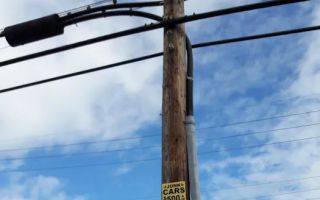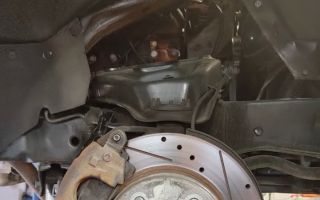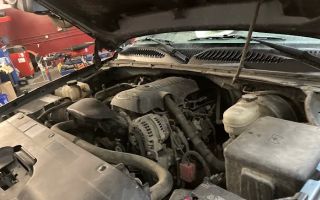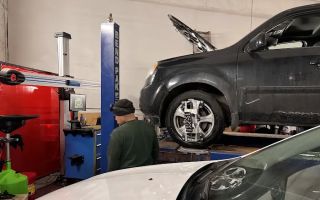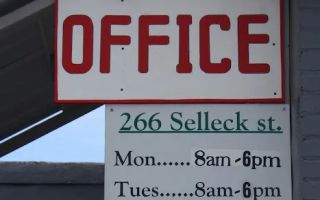Signs Your Car Needs a New Alternator: How to Identify the Symptoms
Over the years of owning cars, I’ve learned that the alternator is one of those parts that can easily be taken for granted until something goes wrong. It's easy to forget about it because, unlike tires or oil, the alternator doesn’t require regular checks or attention. But when it begins to fail, the signs can be frustrating and worrying. I remember the first time I experienced alternator problems—I was on a long drive and noticed that my headlights began to dim and flicker. Before I knew it, my dashboard lights went out entirely. Panic set in, but after diagnosing the issue, I realized my alternator was the culprit. In this article, I’ll walk you through the common signs that your car may need a new alternator, based on my experiences and some valuable lessons I’ve learned along the way.
1. Your Car Struggles to Start or Won’t Start at All
The first major sign that your alternator might be failing is trouble starting your car. If your vehicle struggles to start, or if it won’t start at all, even after turning the key multiple times, it could point to a failing alternator. Let me explain why: the alternator is responsible for charging your car’s battery while the engine runs. If it isn’t functioning properly, your battery may not receive the charge it needs, which means it will drain quickly and leave you with a dead battery. In my experience, I’ve found that a struggling car start is often linked to an alternator issue, especially if the battery itself is relatively new and hasn’t shown any issues before.
When the alternator goes bad, it can’t provide the necessary charge to the battery, which leads to that frustrating click when you turn the key. I’ve had this happen to me once, and after a quick jump-start, I was able to get to a shop where they tested the alternator and confirmed that it was indeed the problem. If you find yourself dealing with a car that’s hard to start, don’t just jump to conclusions and replace the battery—take a moment to consider the possibility that it might be the alternator.
2. Flickering or Dimming Headlights
Another warning sign that I've encountered several times involves flickering or dimming headlights. I’ll never forget one evening when I was driving down a dark road, and I noticed the headlights on my car weren’t as bright as usual. The lights would flicker, dim, and occasionally brighten again. After a while, the issue worsened to the point where the lights were almost completely out. I pulled over to the side of the road, fearing the worst, only to find that it was the alternator causing the issue.
The alternator powers not just your battery but also your vehicle’s electrical system, including the headlights. If the alternator isn’t working properly, it won’t be able to provide the necessary power to these components, causing them to behave erratically. If your headlights flicker or become unusually dim, it’s a clear indication that your alternator is struggling to supply adequate power, and it might be time to replace it.
3. Warning Lights on the Dashboard
Modern vehicles come equipped with warning lights on the dashboard that alert you to problems with your car’s electrical system. One of the most common lights to appear when your alternator is failing is the “Battery” light. When this light comes on, it's often a sign that your alternator is not charging the battery correctly. I remember the first time I saw the battery light come on in my car—I thought it was just a fluke, but it ended up being a signal that my alternator was about to fail completely.
If you see the battery light come on, it's important not to ignore it. While it could indicate a problem with the battery itself, it often points to a failing alternator. In my case, I was lucky enough to get my alternator checked before it failed completely, but I’ve heard plenty of stories from other drivers who were not so fortunate. When the alternator stops charging the battery, the entire electrical system of the car starts to fail, leading to further complications.
4. Strange Noises Coming from the Engine
Over the years, I’ve learned to trust my car’s sound. When something doesn’t sound right, it usually isn’t. One of the more subtle signs of an alternator problem is unusual noises coming from the engine. If you hear a grinding or whining noise, especially when the engine is running, it might be a sign that the alternator bearings are worn out. These noises are often caused by friction between the alternator’s moving parts, and they’re a clear indication that the alternator is on its way out.
In my experience, I first noticed this noise while driving on the highway—at first, I thought it was just road noise, but when the sound persisted and grew louder, I realized it was coming from under the hood. A quick inspection revealed that the alternator was failing, and once replaced, the noise stopped immediately. If you’re hearing a grinding or whining sound from the engine, don’t ignore it—get it checked out right away to avoid further damage.
5. Electrical Components Stopping or Acting Erratically
If your vehicle’s electrical components, such as the radio, power windows, or air conditioning, stop working or act erratically, this is often a sign that your alternator isn’t producing enough power. I’ve had this happen in the past, and I noticed that my radio would turn off and on unexpectedly, and the power windows would struggle to move up and down. This can happen because the alternator isn’t providing the necessary electrical charge to run these components efficiently.
Electrical problems are often symptoms of a failing alternator, and when you notice multiple components acting up at the same time, it’s a good idea to get your alternator tested. If you’re driving with these kinds of issues, it’s only a matter of time before the alternator fails completely, and you’re left with a car that won’t start at all.
6. Car Stalling While Driving
Another significant sign that I’ve personally experienced with alternator failure is the car stalling while driving. If your alternator is failing and not providing enough power, the car’s engine can lose power and stall. I was driving home from work one evening when my car just stopped running in the middle of the road. Thankfully, I was able to pull over, but the situation could have been much worse if I had been on a busy highway or at a dangerous intersection.
The reason this happens is that the alternator not only charges the battery but also powers critical components like the ignition system. If the alternator can’t provide power, the car can stall. If your car stalls while you’re driving, it’s crucial to get your alternator checked as soon as possible to avoid being stranded on the road.
7. How to Handle a Bad Alternator
When I first realized my alternator was failing, I immediately called for roadside assistance. I wasn’t sure how far I could drive with a faulty alternator, so I didn’t want to risk getting stranded. If you notice any of the signs I’ve mentioned, it’s important to act quickly. In some cases, you may be able to get the alternator replaced or repaired at a nearby shop, but if your car is completely dead or stalled, it’s best to call a towing service to safely transport your car to a repair facility.
I’ve used services like Rescue & Towing in the past when my alternator failed, and I highly recommend them. They’re fast, reliable, and always have experienced professionals who know how to handle situations like alternator failure. Having a towing service you can trust makes all the difference when dealing with a breakdown.


